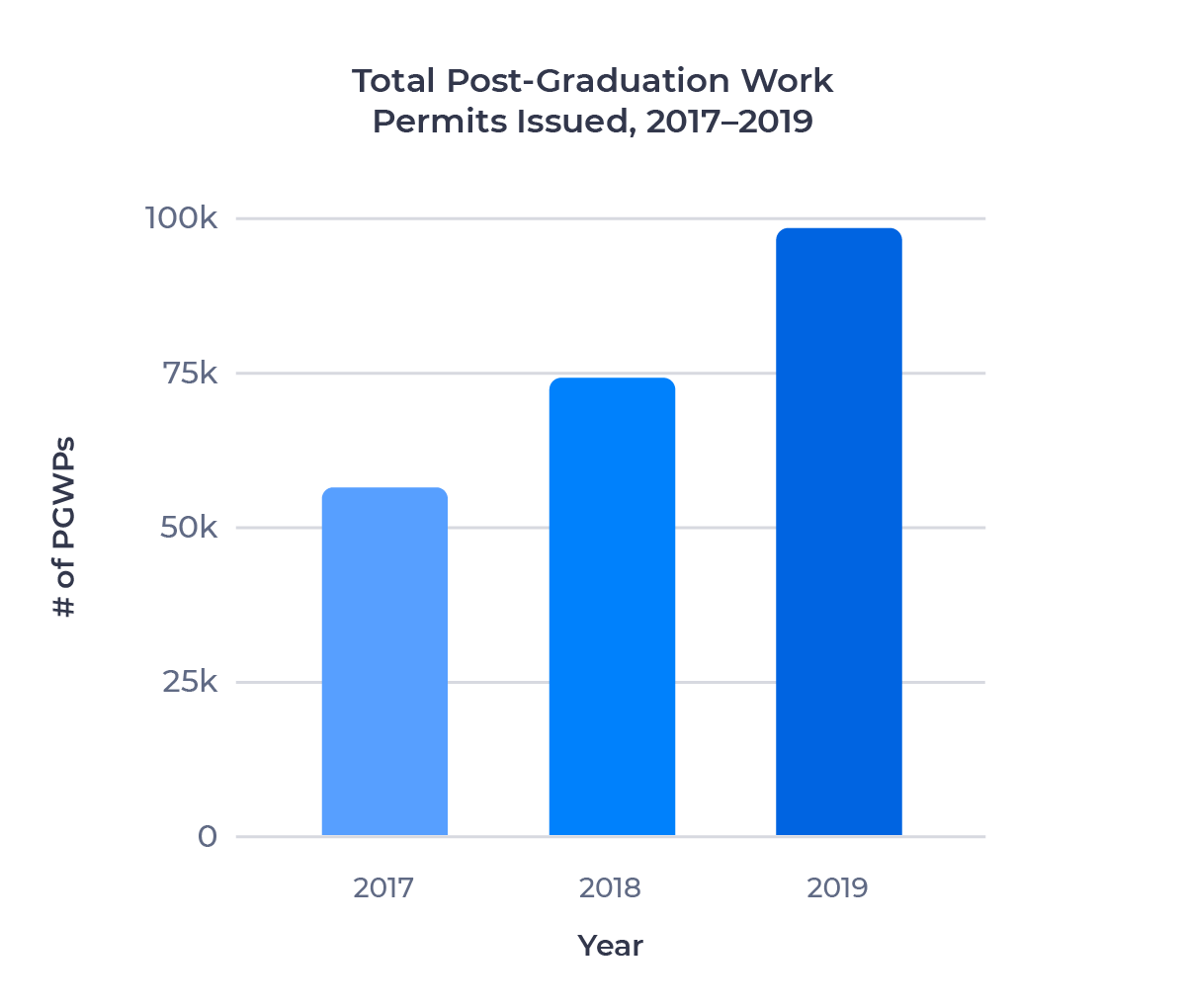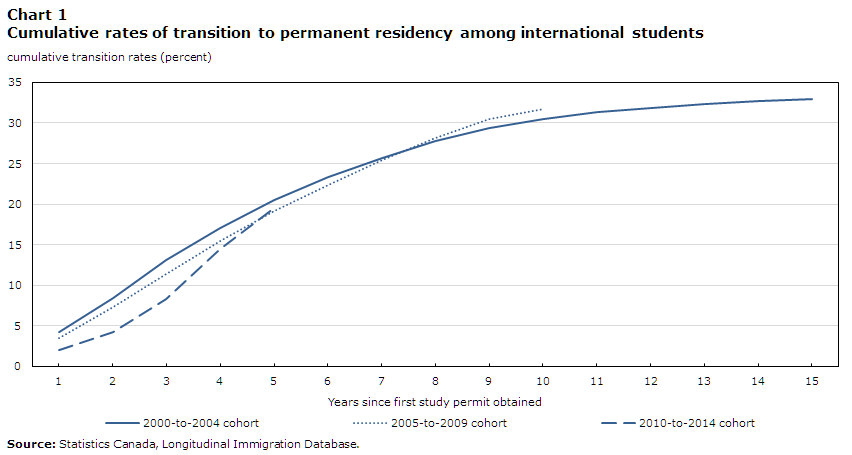If you have recently graduated from an accredited university in Ontario, you may be wondering what your next steps are. One option available to you is a post-graduation work permit (PGWP). This blog post will provide you with all the information you need to know about PGWPs in Ontario, including who is eligible for one, how to apply, and Frequently Asked Questions (FAQs).
What is a post-graduate work (PGWP) permit?
A post-graduate work permit (PGWP) is a document that allows you to work in Canada for up to three years after you graduate. In order to qualify, you must have studied full-time at an accredited university in Ontario for at least eight months. Once you have graduated, you can apply for a PGWP online or by mail. If your application is approved, you will receive a work permit that will be valid for the same length of time as your study program, up to a maximum of three years.
The number of Canadian post-graduate work permits issued rose at almost twice the rate from 2017 to 2019.

There are many benefits to having a PGWP. First and foremost, it gives you the opportunity to gain valuable work experience in Canada. This can be helpful if you eventually want to apply for permanent residence through one of the many programs offered by Immigration, Refugees and Citizenship Canada (IRCC). Additionally, a PGWP can help you to support yourself financially while you are looking for work or furthering your education.
If you are eligible for a post-graduation work permit and plan on working in Canada after graduation, it is important to apply as soon as possible. You cannot begin working until you have received your work permit, so it is best to submit your application as soon as you have graduated. Keep in mind that processing times can vary depending on the time of year and the volume of applications received, so make sure to give yourself plenty of time before your intended start date.
Who is eligible to apply for PGWP?

To be eligible to apply for a post-graduation work permit, you must meet the following criteria:
- You must have graduated from an accredited university in Ontario.
- You must have studied full-time for at least eight months.
- You must have a valid study permit when you apply. If your study permit has expired, you may still be eligible to apply if you applied to renew it before it expired and are waiting for a decision on your application.
If you meet all of the above criteria, congratulations! You are now eligible to apply for a PGWP. The next step is to gather all of the required documents and submit your application online or by mail. Don’t forget that processing times can vary, so make sure to give yourself plenty of time before your intended start date.
Does GPA matter for PGWP?
No, your GPA does not matter for PGWP. As long as you have graduated from an accredited university in Ontario and have studied full-time for at least eight months, you are eligible to apply for a PGWP. Your GPA will not affect your application in any way.
Is PGWP different from work permits?
Yes, PGWP is different from a work permit. A work permit allows you to work in Canada for a specific employer, whereas a post-graduation work permit (PGWP) gives you the freedom to work for any employer in Canada. Additionally, a work permit is usually valid for one year or less, while a PGWP can be valid for up to three years.
How long does a PGWP last?

A post-graduate work permit can last up to three years. After you have graduated, you can apply for a PGWP online or by mail. If your application is approved, you will receive a work permit that will be valid for the same length of time as your study program, up to a maximum of three years.
Can I apply for PR after PGWP?
Yes, you can apply for permanent residence through one of the many programs offered by Immigration, Refugees and Citizenship Canada (IRCC) after you have graduated and obtained a post-graduation work permit. The work experience you gain while working in Canada on your PGWP will be helpful when you apply for permanent residence. Additionally, if you eventually want to apply for citizenship, having a PGWP will give you valuable points under the Express Entry system. In fact, the number of international students that have acquired their permanent residency in Canada has steadily increased for decades.

Final thoughts on PGWP’s in Ontario
We hope this guide has been helpful in answering some of your questions about post-graduation work permits in Ontario. If you still have questions or need more information, please contact us, and our immigration lawyers would be happy to assist you further.







